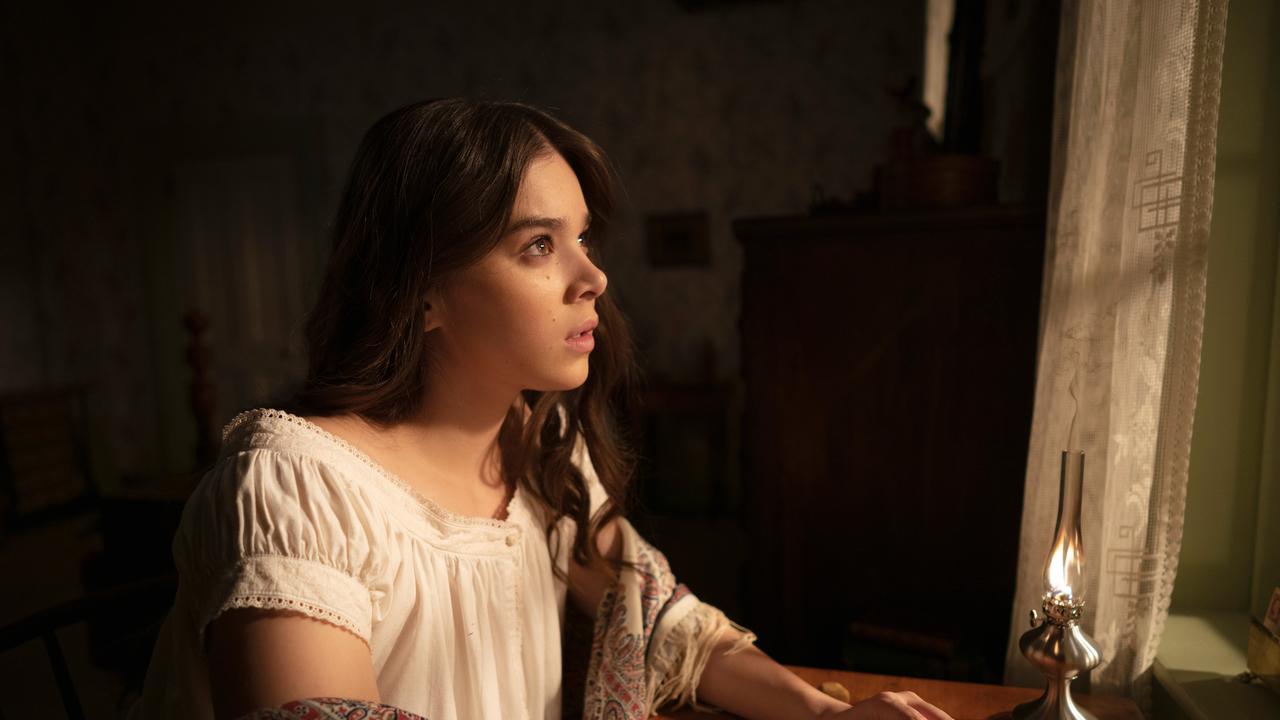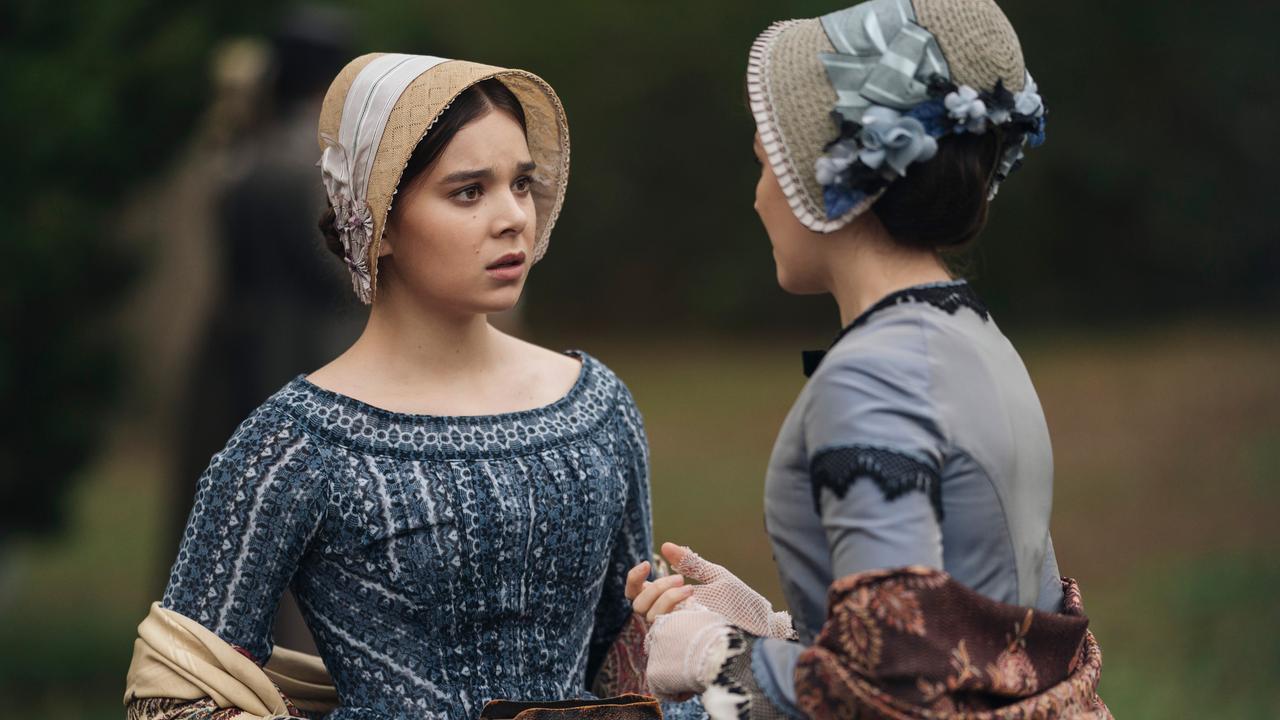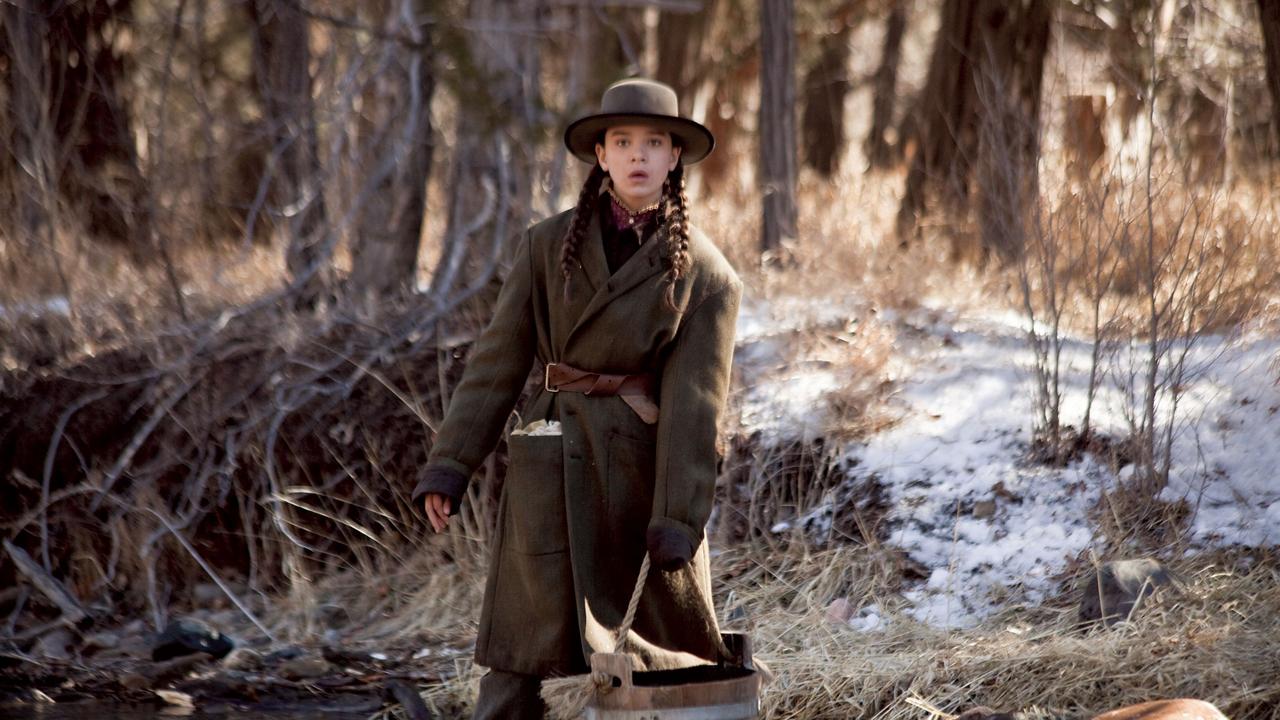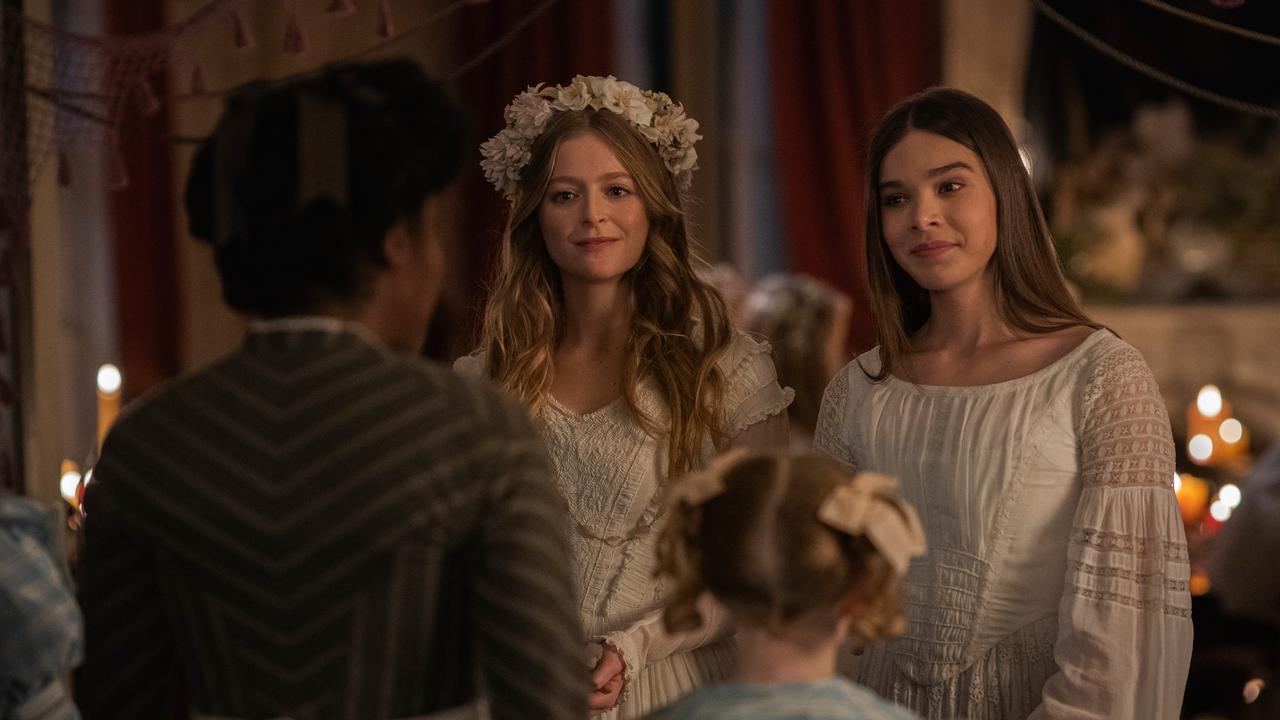Dickinson season two: Hailee Steinfeld on fame, art and what really matters
The winsome Dickinson returns with pressing questions about fame and art. Star Hailee Steinfeld reveals how she can relate to its heroine.
Fame is not a modern-day conundrum.
But Dickinson, Apple TV+’s drama about real-life renowned 19th century American poet Emily Dickinson, is indeed a modern TV series, even if it’s set 160 years ago.
Centred on a young Emily’s experiences in finding her way in a world that is dismissive of women’s achievements and agency, the captivating Dickinson is imbued with a freshness and urgency that makes it as relevant to now as any work set today.
Using the vernacular and emotional language of 2021, there’s nothing staid about it as Dickinson’s youthful characters deal with the universal struggles of growing up – sexuality, discovery, self-expression, self-acceptance and the burden of responsibility.
Dickinson is one of Apple TV+’s more critically successful series and has already been renewed for a third season.

RELATED: The best TV shows of 2020
Fame is the watchword in the second series, streaming now, as Hailee Steinfeld’s young Emily grapples with the price of it and the relationship between art and fame in the same way that we, in 2021, are in constant negotiation between creativity and popularity.
Is a creative work to be considered art based only on how famous it or its maker is? On how many albums were sold? How many views it garnered? What the opening weekend box office is? The number of followers on social media?
And in the case of Dickinson’s Emily, is her poetry only art if she’s published and recognised by a wider audience?
Steinfeld can relate to Emily’s quandary about art and its relationship with public assessment.
“That’s something I share in common with Emily as far as the fear of the work itself being misunderstood or not recognised in the right sort of fashion,” she told news.com.au. “But I guess it’s accepting that once it’s out, it’s up for interpretation.
“And you can’t hold onto your one image of it because it becomes someone else’s. I think there’s definitely a fine line between the intention of putting it out and what it becomes because of what other people make of it.”

RELATED: How an outsider captured the American heartland
On the question of fame and recognition, as Emily entertains the prospect of being published in a regional newspaper, Steinfeld said she could relate to being “confused by” the many layers of fame.
“It was definitely a bit challenging for me, a lot of season two, because I found that I had never asked myself these questions about fame,” she said. “I’ve never felt moved by it in the sense that Emily is, so it really made me think about what it is really, and do I have it? How would I get it, do I want it even?
“It’s a weird thing and it definitely made me think that it was confusing for a minute.”
Steinfeld, 24, has been steadily working on screen since she was 10 but her role in the Coen brothers’ 2010 western True Grit was her breakout. Her instinctive, impactful and persuasive performance was nominated for an Oscar for Best Supporting Actress – she was only 14-years-old during production.

Since then, Steinfeld has carved out an impressive career in films including the Pitch Perfect franchise, The Edge of Seventeen and Bumblebee while also releasing two EPs.
Dickinson was her first regular TV role but not her last – she recently filmed episodes for Marvel’s Hawkeye series where she will play Kate Bishop, a character which took over from ace archer Clint Barton (played by Jeremy Renner in the MCU).
So Steinfeld has definitely had some experience with fame, a concept the real-life Dickinson immortalised as “fame is a fickle food upon a shifting plate”.
For someone thrust into the public eye at a formative age, Steinfeld has managed to avoid the scandals and seemingly poor choices that have plagued other young stars.
So perhaps it’s not surprising that she said even though the experience of working on Dickinson, and with creator Alena Smith, gave her plenty to think about, she already had a “healthy relationship” with fame.
“I don’t know that I had a sort of unclear [perspective on fame] to begin with, but I appreciate the show for everything it is and making me think about more things than just fame, but fame as well.
“I do feel like I’ve always had a sort of healthy relationship with it, so it didn’t necessarily make me feel much differently, but it just made me think more about it.”

Even though Steinfeld contended that the nature of making art to be consumed by the audience means that those watching will form their own interpretations of Dickinson, she still has hopes for what they will take away from this new season.
“Overall, this show has always been about being seen and being understood and seeing other people for who they are, and acceptance,” Steinfeld said.
“With the year we’ve all experienced in 2020, this season really reminds us, on top of everything, to think about what really matters in life. And it reminds us to appreciate that sometimes an amount of likes or views or box office or albums sold, does it really matter at the end of the day?
“Are you really happy? Do you really have people that you love? Are you surrounded by people that love you? That see you and understand you for who you are?
“Because if you don’t have that, those numbers don’t mean anything, and that’s what the show is serving as a reminder of.”
Dickinson seasons one and two are streaming now on Apple TV+
Share your TV and movies obsessions | @wenleima




